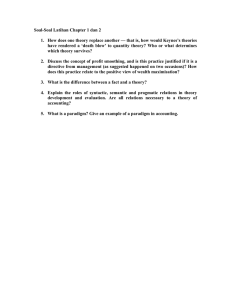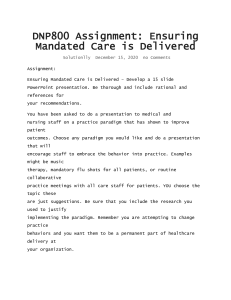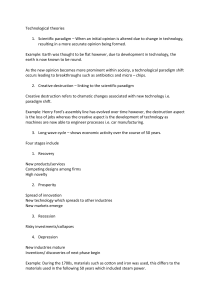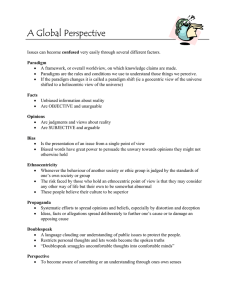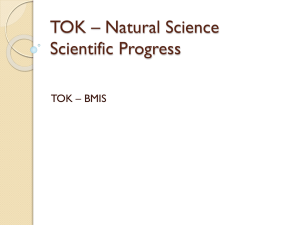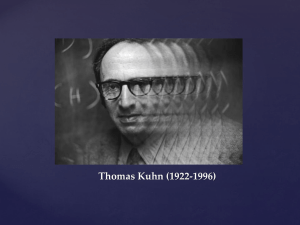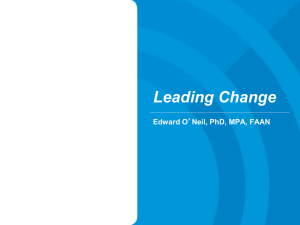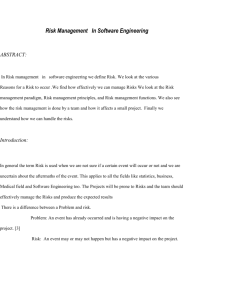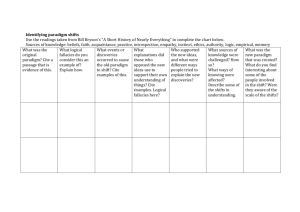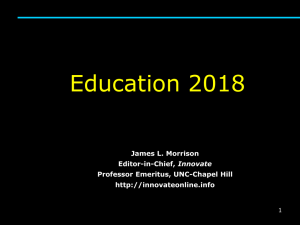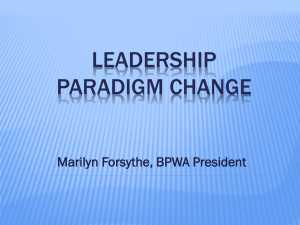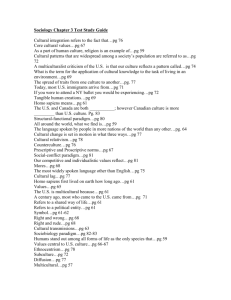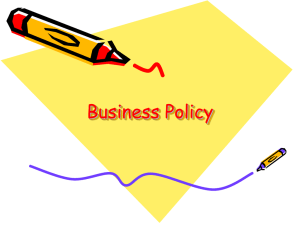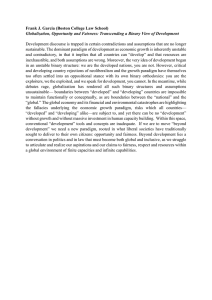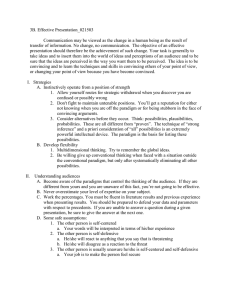Paradigms of Government Lecture Notes
advertisement
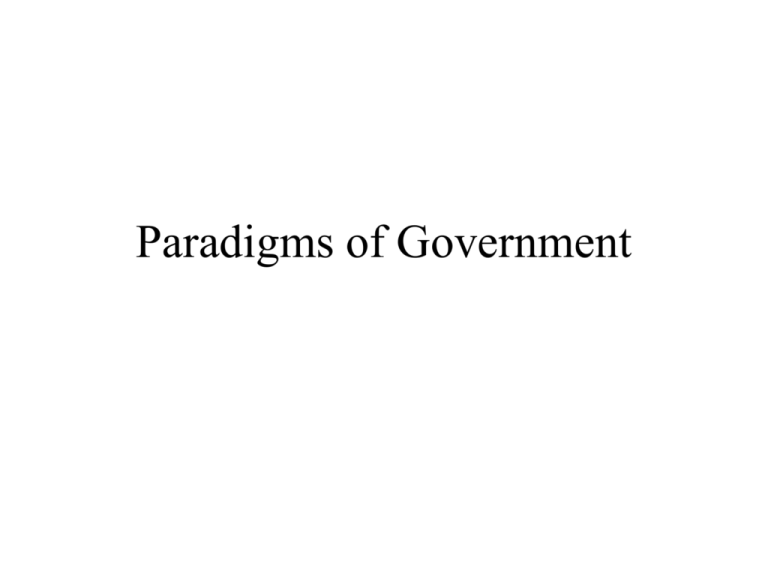
Paradigms of Government What is a Government? • The image of the leaders? • The collective image of the Citizens of the country? • A collection of institutions? What is the Paradigm of the Paradigm of a Government? • Business Organizations – Appropriate? – Assumptions • Homo economis – What is the Rational Actor Model? – What is Comprehensive Rationality? Simon’s answer • Comprehensive Rationality is not possible because the problems are too large. Therefore: – – – – – Make the problem smaller Satisfice Search for the first acceptable alternative Avoid uncertainty Develop repertoires of action programs Allison’s answer • 3 factors in organizations – Goals, Expectations and Choice • His paradigm for institutional response: – Quasi resolution of conflict – Uncertainty avoidance – Problemistic Search (first alternative that meets the goals) – Organizational learning Returning to the top… • What is the product of Government? / What is the organizational objective of Government? – Action (or inaction) • Who / What are the actors? – Institutions ? / Individuals • How do they act? – Standard Operating Practices (SOP) – ROUTINES • What is the most difficult thing to do in Government? – Change the routine / SOP The Simple Paradigm • Structural Functional Analysis – Developed in the ’50s and early ’60s and out of favor by the late ’60s • BUT… – Answers the question. “If this is what the organizations mandate / goal / objective is (function), is the institutional structure capable of accomplishing these goals?” Innovation (Wilson) • What makes for innovative institutions? – Diversity in the organization innovation – Small organizations innovation – Big organizations • • innovation and proposals acceptance of innovation Lee, Ball and Tabors on Energy Policy • Technology, not resource depletion, is the driving force for substitution • The consequences of poor strategies can be enormous and unpredictable • Most forecasts are wrong, therefore robustness is a critical planning requirement • The task of analysts is to lay out the options, not to tell the decision makers what to do • Measure the right thing • Do not confuse the systems approach with systems analysis • Understand technologies and manage them accordingly • Quality pays and cleaner is cheaper • Don’t overemphasize science and de-emphasize engineering • Government Sponsored R&D projects in areas where the government is not the user of the results are usually ineffective
